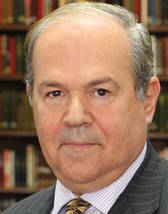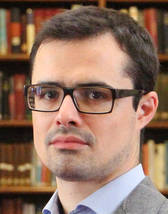Trump Inauguration: Challenges Facing the New Administration, and the World
Trump’s Approach on International Security: Pick Your Crises Carefully
New presidents often define their approaches to security policy in contrast to those of their predecessors. Donald Trump projects himself as a man of decisive action, in contrast to Obama’s risk-aversion. A ‘roll back’ approach to China is being developed, seeking to reverse longstanding agreements on trade and Taiwan, as well as challenging China’s gains in the South China Sea. A redoubling of efforts against Daesh is on the cards, alongside a more aggressive approach to Iran. In contrast, Trump is committed to a more conciliatory stance towards Russia, much to the displeasure of key European allies. A more assertive approach could pay dividends. But it could also carry real risks, turning minor disputes into a test of wills between leaders, or even triggering outright conflict. As successive new crises emerge, Trump’s unique personality will be put to the test as never before.
By Professor Malcolm Chalmers, Deputy Director General, RUSI.
Defence Procurement: No Sacred Cows, Just Value
DOTUS the ‘businessman’ is a details guy. A quick, historical review of Donald Trump’s business empire reveals three things. First, there are both failures and successes, suggesting an executive who is comfortable with taking risks. Second, Trump is a chief who has the knack of surrounding himself with highly competent people from a variety of disciplines. Finally, he is a guy who, beyond the bravado and outrageous showmanship, is comfortable with, and indeed thrives on, detail.
This will be significant in a number of ways. Defence and security doctrinal wonks will need facts, testable analyses, cost-benefit ratios and stated outcomes rather than re-peddled theories of geopolitics, grand strategy fairy stories and wishful thinking. The realist with a demonstrably successful military or business background will have more impact than the university professor clutching their PhD thesis on liberalism and nation building.
We can expect hard re-negotiation between government and commerce: large-ticket items such as the F-35 programme will have a forensic eye cast over them. Value for money will ‘trump’ prestige. Second, the US’s relationship with its allies will become more transactional. NATO states had better commit to national defence spending levels of 2% of GDP, and US defence technology will be used as a big stick to drive compliant behaviours.
Lastly, anybody wanting to make sense of Trump’s approach to defence and security should quickly enrol on a business studies course and major in balance sheet analyses and investment appraisals. The defence discourse is about to change.
By Professor John Louth, Director, Defence, Industry and Society Programme, RUSI.
Expect Big Changes to the US Military
Donald Trump has filled the key positions in his cabinet not with liberal elite scholars, but with practical people, many from the US military. It would be a mistake, however, to consider them stupid or naïve. Instead, they have proved they can change things – big things – not with money, or for money, but with ideas and new doctrine. Importantly, Mattis, Kelly and Flynn have also succeeded in implementing radical departures from ‘business as usual’. It would be a mistake to underestimate the changes that will occur to the US military over the next decade because of this new direction. It will have to embrace new thinking, a more offensive doctrine, more pace and less mediocrity. It will be the key delivery agent of Trump’s ambition, less hampered by strategic prevarication. Making change happen will be the measure of success, not the balance sheet.
By Dr Peter Roberts, Director, Military Sciences Programme, RUSI.
Good Relations with Russia Easier Wished Than Done
Donald Trump’s hopes of forging a new relationship between the US and Russia are based on the assumption that Moscow will play the role the US president assigns to them: cooperate in the fight against terrorism; create fewer problems for the US in Europe; and join hands with Washington in containing or at least cornering China, which Trump views as the key challenge facing the US. But although Russian President Vladimir Putin has every interest in exploring cooperative projects with a Trump White House, the Russians are unlikely to deliver on any of Trump’s own objectives. Putin wants a free hand in Europe, yet he has no interest whatsoever in cooperating with Washington over China’s containment. The US–Russia relationship could turn into a courtship which disappoints both sides.
By Dr Jonathan Eyal, Associate Director, RUSI.
Sanctions and Threats
The topic of sanctions, from North Korea to Iran and Russia, is perhaps the area that President Trump’s international partners will monitor with most trepidation. Nowhere is his belief in America’s superiority and in his ability to do deals more evident: the Iran nuclear deal is ‘horrible’; if ‘very smart’ Putin likes him, that’s ‘an asset’; and he will make sure North Korea’s planned nuclear weapons programme development ‘won’t happen’, even if China won’t help. (Nice!)
In some areas (such as sanctions on individuals for terrorism or human rights violations), we can expect no change. In others, such as those country-related sanctions that conflict with the president’s view of the world, things might look different very soon.
By Tom Keatinge, Director, Centre for Financial Crime and Security Studies, RUSI.
Counterterrorism: Some Old Truths, Reasserted
President Trump is unlikely to materially change the struggle against international terrorism and Daesh in particular. The new president is likely to find himself constrained in much the same way as his predecessor, and with the same tools at his disposal. He may be able to find a way of using the fight against terrorism as a common threat to bring the US closer to Russia once again. The new president will find that Daesh and Al-Qa’ida are persistent threats with deep roots, despite long being aggressively targeted by intelligence, drones and military force. Further opening that tap may help continue to hammer the threat, but it will be unlikely to make it go away.
By Raffaello Pantucci, Director of International Security Studies, RUSI.
Destabilising and Strengthening the Foundations of Security in Asia
Trump’s Asia��–Pacific policy seems to consist more of an evolving grand bargaining chip in his quest to confront a rising China, than an effort to build an effective and resilient security structure in the region. However, by abandoning the received wisdoms on which Obama’s pivot to Asia was predicated, the new president has given additional impetus to some nations, such as Japan, which are seeking a stronger role in Asia, while smaller nations try to diversify and hedge their partnerships.
Trump will discover that there is a fine line to walk between strengthening the players against China – by hinting that the provision of the US security umbrella cannot be taken for granted – and unleashing a free-for-all over regional security structures of the kind Washington does not wish to see.
Trump will ultimately have to formulate a coherent China policy and play his cards carefully – outlandish statements are useful at times, but the region still needs a security guarantor with some measure of stability and maturity.
By Veerle Nouwens, Research Analyst, RUSI.
Support for Israel: Concentrating on the Essentials
Donald Trump’s administration has been clear in its strong support for the state of Israel. Counteracting international pressure on the government of Benyamin Netanyahu will be a key component of the administration’s regional policy. Although there is talk of moving the US Embassy to Jerusalem, this will be difficult to achieve, particularly given the anticipated pressure from Gulf States and the EU. The expectation, therefore, is that Middle East envoy JaredKushner – Trump’s son-in-law – will focus less on such gestures, and more on preventing an enforced solution on Israel that commits it to territorial withdrawal. Meanwhile, the administration will double down on the Pentagon’s current strategy, aiming to destroy Daesh as a regional military threat, while arming the Kurds in both Syria and Iraq and bolstering Iraqi forces.
By Michael Stephens, Research Fellow, RUSI.
A Fragile Relationship with Iran, Even if the Nuclear Deal Survives
The survival of the Iran nuclear deal will be one of the best tests of the extent to which Trump intends to translate campaign rhetoric into policy. He has promised to rip up the agreement on day one of his tenure, a move that would create earthquakes in the Middle East and beyond. However, even if the Iran deal survives Trump’s first few months in office, domestic politics in both Washington and Tehran risk turning any small infraction of the accord into major incidents that threaten the deal’s very existence.
By Cristina Varriale, Research Analyst, RUSI.
Malcolm Chalmers
Former Deputy Director General, RUSI
Professor Peter Roberts
RUSI Senior Associate Fellow, Military Sciences
Jonathan Eyal
Associate Director, Strategic Research Partnerships
RUSI International
Tom Keatinge
Director, CFS
Centre for Finance and Security
Raffaello Pantucci
RUSI Senior Associate Fellow, International Security
Veerle Nouwens
External Author | Former RUSI Senior Research Fellow, Asia-Pacific
Michael Stephens
RUSI Senior Associate Fellow, RUSI International
Cristina Varriale
RUSI Associate Fellow, Proliferation and Nuclear Policy








